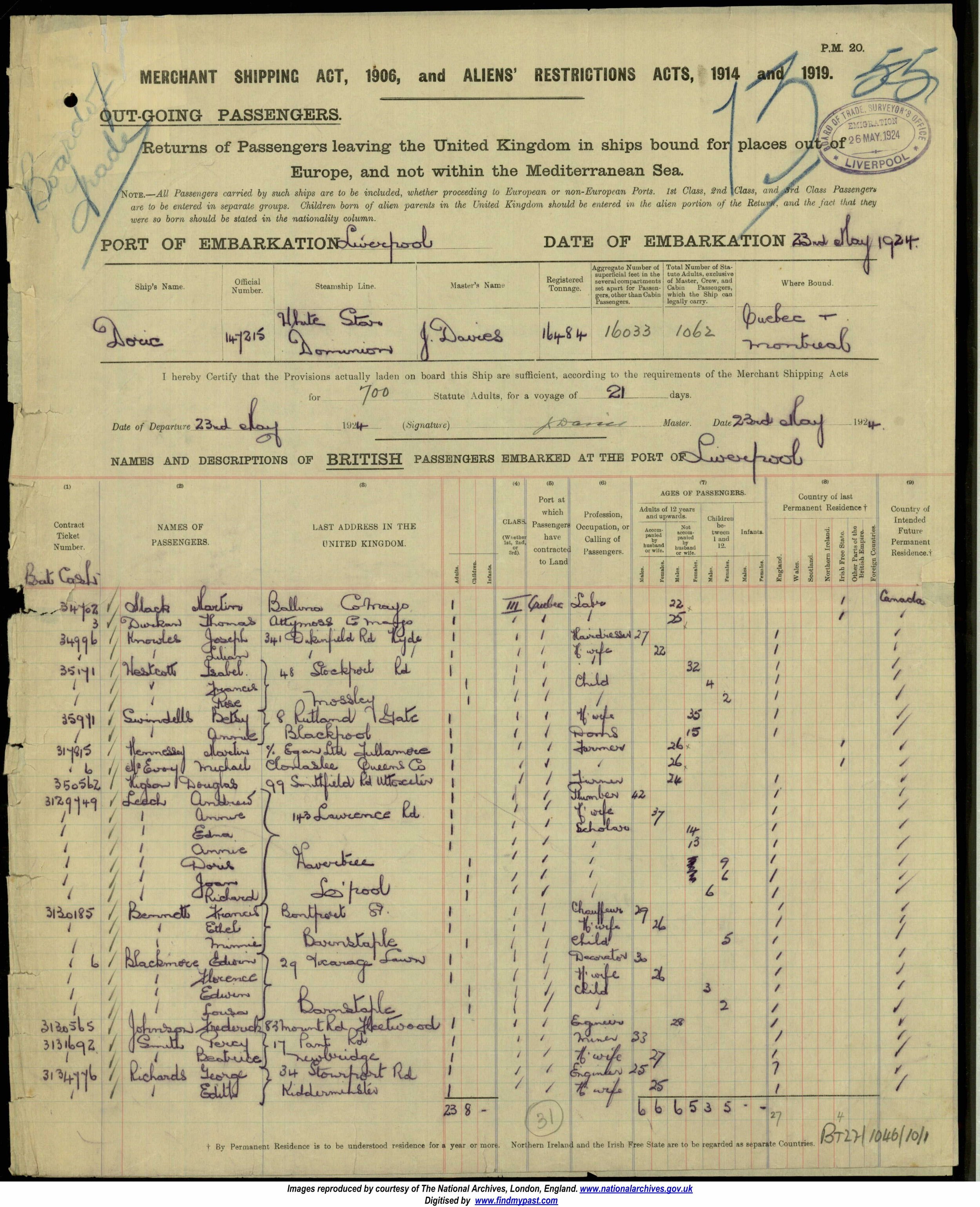16/52 - Pieces of an Irish Puzzle - 1
My grandmother Sarah McEvoy was the only grandparent any of us ever knew. She was quite a character, and I’ve written about her before:
12/52 - Angela’s Ashes Averted
Happy St. Patrick’s Day, Sarah!
We're planning a trip to Ireland, and I've been thinking about some of the holes in Sarah's story that I want to fill. Here's one: Why Did Sarah Choose to emigrate WHEN she did?
Sarah was born on 4 February 1892 in a Townland called Graigueafulla in the Clonaslee district in Queens County, rechristened “Laois” County after British-themed place-naming became somewhat unfashionable. Her older sister Margaret left for America on 4 June 1908 from Cobn (a seaport town on the south coast of County Cork) aboard the S.S. Umbria. Her brother Joseph left a year later, on 26 August 1909, aboard the S.S. Teutonic. Sarah arrived via the S.S. Adriatic with her sister Elizabeth on 17 November 1924. She was preceded by brother Michael and the future husband of Elizabeth, Martin Hennessey, who both arrived via a Liverpool to Quebec crossing on the S.S. Doric (arriving 23 May 1924) and then apparently via an "unofficial" border crossing at Windsor/Detroit (7 June 1924).
First, the story of Sarah's brother Michael and future brother-in-law Martin. Michael's son Joseph (now gone) told me that he had heard that his father and Martin were told by a priest during Mass sometime in 1924 to "leave via the back door of the church" because "the authorities were waiting to arrest them." After that, they hid "in the bogs" until passage could be booked, according to Joseph, as part of a contract to agree to work "in the wheat fields of Alberta." On the trip across Canada, they supposedly decided that contract wheat field work was not for them and hopped across the border during a stop in Windsor. Or so the story went. Although the documents back up the story.
On to Sarah. When my mother visited Clonaslee during the 1980s and met a first cousin (Kathleen Kennedy, daughter of my grandmother’s sister Kathleen McEvoy Kennedy), she was told, “Oh, Sarah needed to leave; there was a price on her head. She was connected to the Brotherhood (IRA).”
But why 1924 - and not earlier?
Not knowing many specifics about Irish history, I always equated both these stories with some sort of revolutionary activity during the Irish War for Independence. However, as I went deeper, the timeline didn't fit.
"The Irish Civil War began in June 1922, after a three-year guerrilla war for independence from the U.K. The Anglo-Irish Treaty, signed in December 1921, ended British rule in most of Ireland but left it divided, splitting the island between six predominantly pro-British counties in the northeast, which remained part of the U.K. as Northern Ireland, and the self-governing Irish Free State, which remained a dominion in the British Commonwealth, like Canada or Australia. Under the treaty, Britain would keep its Royal Navy at three ports, and Irish parliamentarians were to pledge an oath of allegiance to the British monarch.
Supporters of the treaty considered it a stepping stone, "the freedom to achieve freedom," as one of its negotiators and an Irish Free State leader, Michael Collins, put it. Those against the treaty felt it betrayed the fight for an independent republic."
(https://newlinesmag.com/essays/coming-to-grips-with-irelands-civil-war/)
There were documented clashes between the pro-Treaty (Free State) and anti-Treaty sides in Laois as early as July 1922. Initially, government forces established control over Dublin and major cities. However, the war evolved into a guerrilla conflict as anti-treaty forces continued their resistance. One instance involved an attack on Free State troops near Abbeyleix, resulting in a fatality (Volunteer Christopher McGlynn). Another involved the expulsion of anti-Treaty forces from their Abbeyleix stronghold and subsequent fighting around Capard House.
“To turn public opinion against the new government, IRA fighters blew up trains, interrupted food and postal deliveries, and looted ships and businesses.” (https://newlinesmag.com/essays/coming-to-grips-with-irelands-civil-war/)
I am guessing that my relatives, including my grandmother, were part of THIS kind of activity and part of the reason why they needed to high-tail it out of Ireland in 1924.
But that’s just a guess. Maybe I can find out while we’re there.






